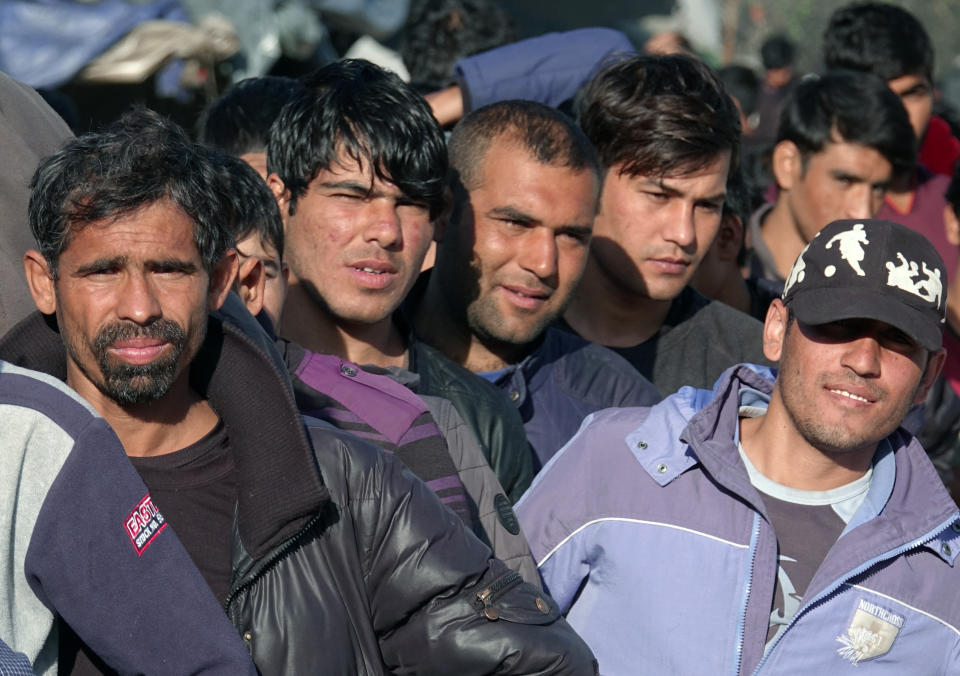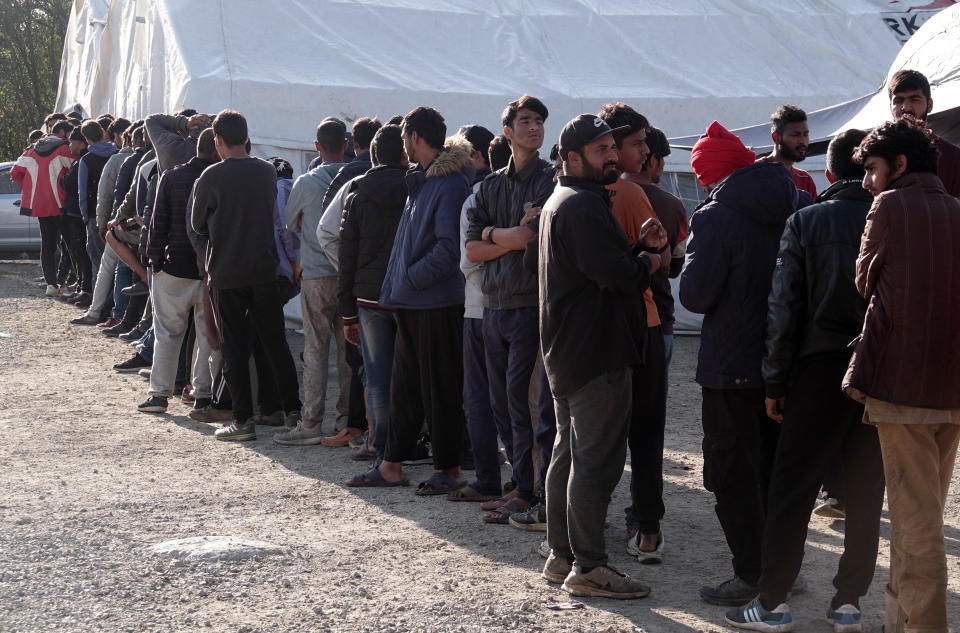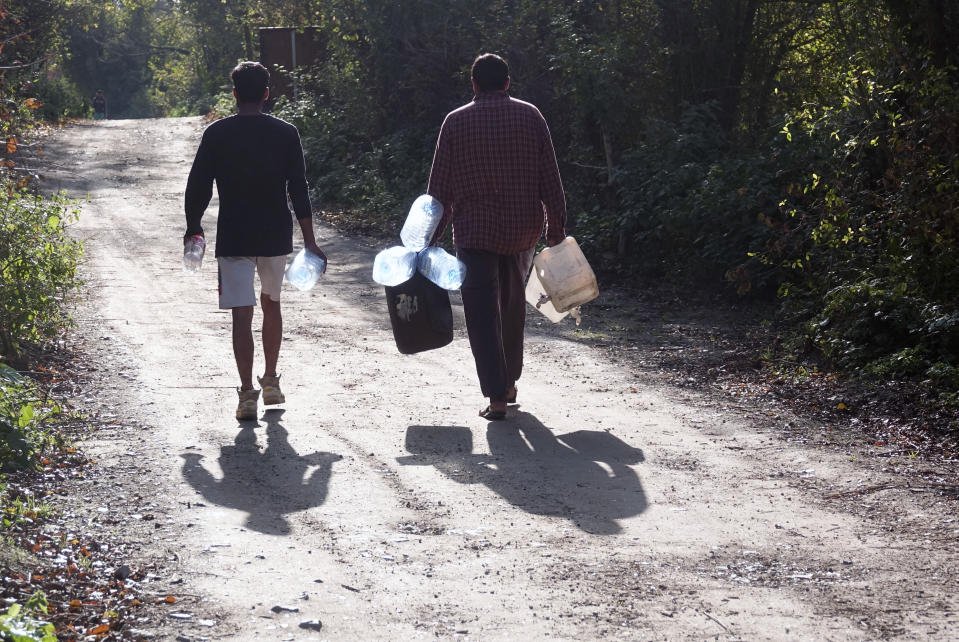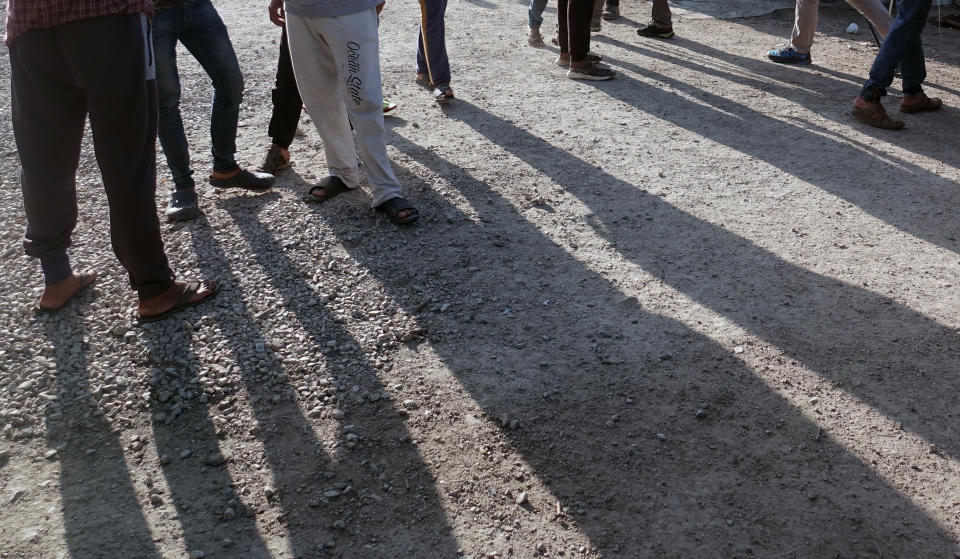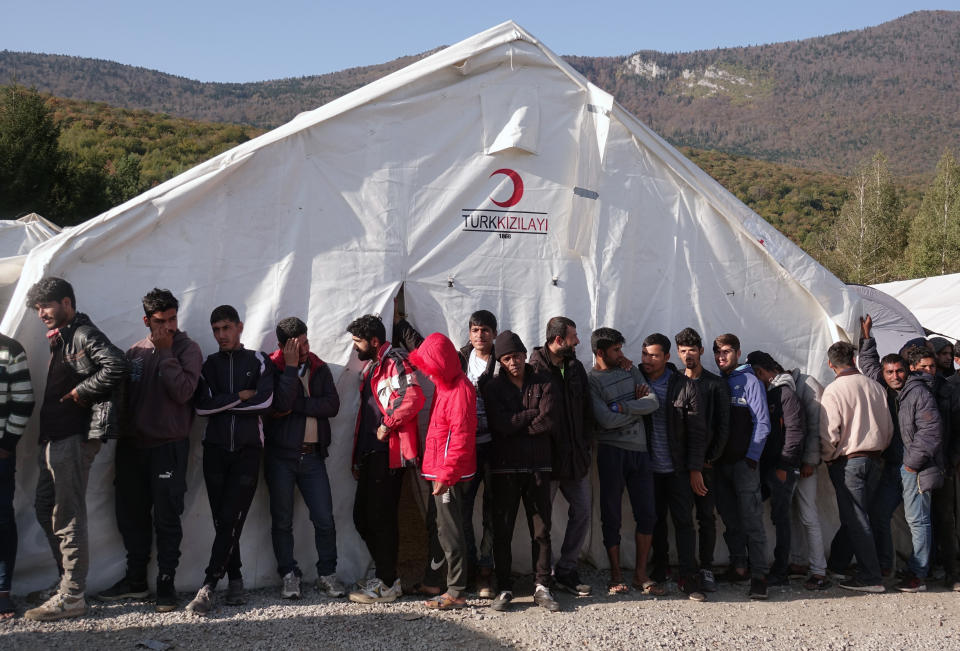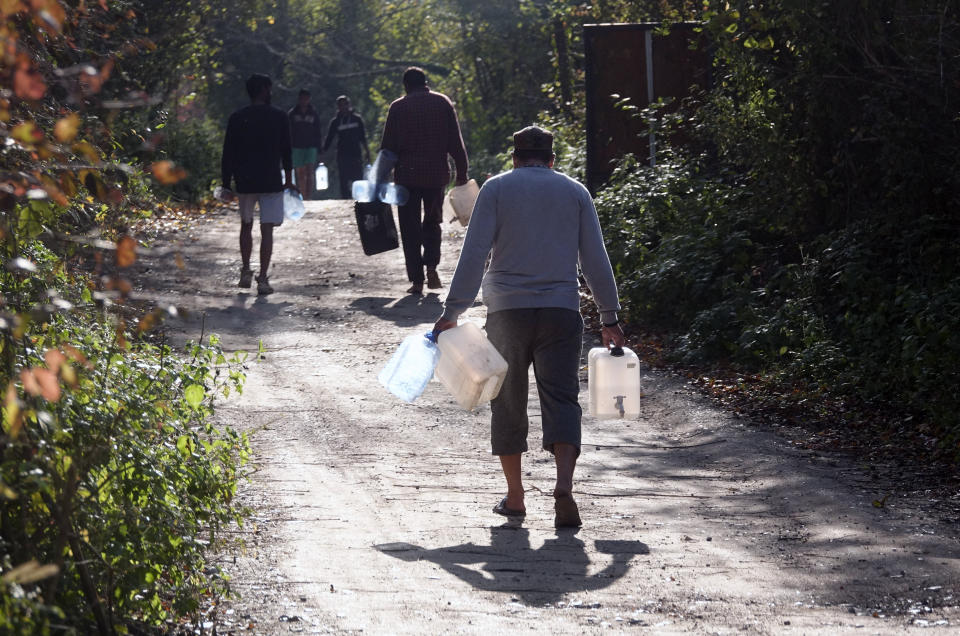Water cut to migrant camp as Bosnian authorities feud
BIHAC, Bosnia-Herzegovina (AP) — Local authorities in the Bosnian town of Bihac on Monday cut off a nearby migrant camp's water supply, to pressure the government into reducing the population of the overcrowded site that international organizations have criticized as unsuitable.
But aid workers said the move will just cause additional suffering for the Vucjak tent camp's 1,000 residents, many of whom walked out of the site with empty plastic bottles to beg water from Bosnians living in the vicinity.
Officials in the northwestern town also announced a crisis meeting to discuss what to do with the camp, which hosts migrants stopped in the impoverished Balkan country while trying to reach Western Europe.
"It is obvious that the situation must be brought to the verge of absurdity in order to be solved," complained Bihac mayor Suhret Fazlic.
Both the United Nations and the European Union missions in Bosnia have urged authorities to relocate the migrants from Vucjak — which is situated on a former landfill and near minefields left over from the 1992-95 war.
Camp resident Osman Ali, from Pakistan, described conditions as "bad, very bad."
"I think all people here are seeking a better situation, situation is very dirty here," he told The Associated Press.
Ali and other migrants were lining up Monday for a meal from the local Red Cross. Police last week rounded up hundreds of migrants from Bihac and brought them all to Vucjak, nearly doubling the camp population.
Fazlic has warned that the city will also cut waste collection services to draw attention to the camp's failings and force the government to share the burden and move some of the migrants to other parts of the country.
Thousands of migrants are stuck in northwestern Bosnia, unable to continue their trek north through neighboring Croatia whose police have been accused of violently repulsing migrants caught trying to illegally cross the border.
Selam Midzic, a Red Cross representative at Vucjak, said cutting the water supply would just raise tensions among the migrants, and consequently with aid workers and locals.
"In the camp itself, migrants will put pressure on the Red Cross representatives, who work here and who have no protection at all, demanding to be provided with drinking water," he warned.
The U.N. last week warned of a possible "humanitarian emergency" if aid is cut for the camp, urging Bosnia's government to urgently find a new location.
In the dusty camp, some migrants used puddle water to wash. Lounging outdoors during a spell of unusually warm weather, others said they fear conditions will deteriorate once winter cold sets in.
Ahmed, from Pakistan, said many migrants have been sick: "(We don't) have water, (or) food, (they) only give one person two (slices of) bread," he said and added, pointing to his feet and clothing: "No have shoes and no jacket!"
Tens of thousands of people from Asia, the Middle East and Africa emigrate illegally to Europe every year, braving perilous sea journeys and closed borders in the hope of securing a better life in the continent's more affluent countries.
On Monday, Libya's coast guard said it intercepted 126 Europe-bound migrants in a rubber boat off the country's Mediterranean coast.
In Malta, authorities said police arrested 107 people following overnight riots in the Hal Fa migrant detention center.
The interior ministry said the trouble, involving about 300 migrants, started late Sunday when a migrant tried to enter the center while allegedly drunk. A police vehicle was damaged and three police officers slightly injured in the violence.
The U.N. refugee agency expressed concern.
